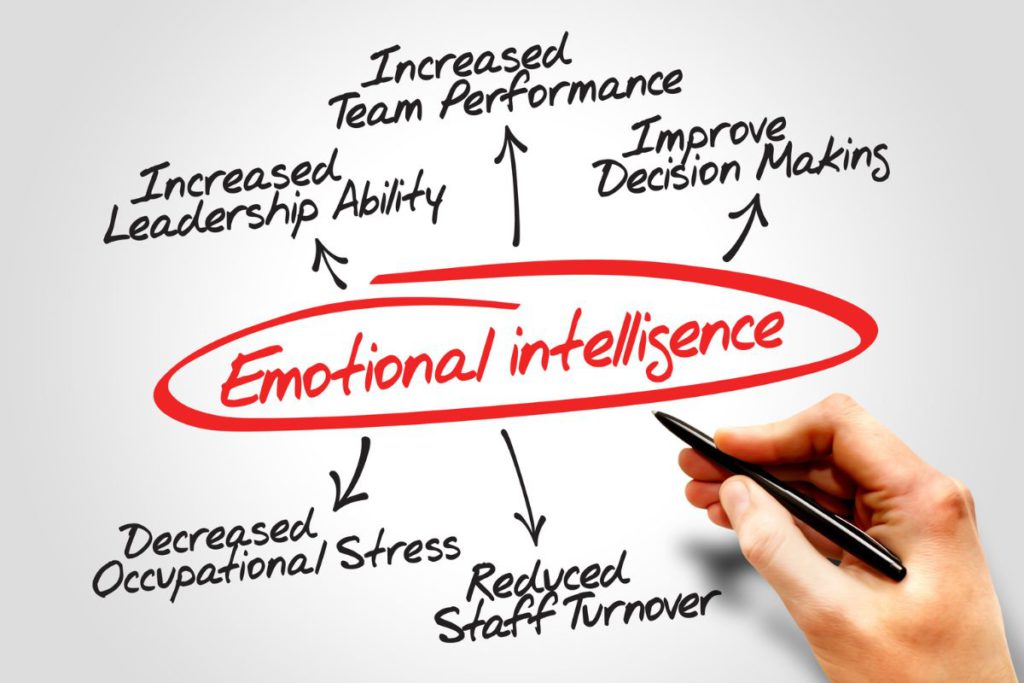In today’s competitive finance industry, technical skills and knowledge are no longer enough to set you apart from other candidates. Employers increasingly recognize the importance of emotional intelligence (EI) in creating a positive work environment, managing stress, and building strong client relationships. This guide will help you understand emotional intelligence and provide practical strategies to showcase your EI skills during job interviews.
Understanding Emotional Intelligence

Before diving into interview strategies, let’s clarify what emotional intelligence means.
What is Emotional Intelligence?
Emotional intelligence, often referred to as EQ (Emotional Quotient), is the ability to recognize, understand, and manage our own emotions, as well as the feelings of others. Psychologist Daniel Goleman, who popularized the concept, breaks EI down into five key components:
- Self-awareness
- Self-regulation
- Motivation
- Empathy
- Social skills
In the context of finance, these skills translate into better decision-making, improved client relationships, effective team collaboration, and enhanced leadership capabilities.
Why is EI Important in Finance?

You might wonder why emotional intelligence matters in a field often associated with numbers and logic. Here’s why:
- Client relationships: Understanding and managing client emotions is crucial for building trust and long-term relationships.
- Team collaboration: Finance often involves working in teams on complex projects. EI facilitates better communication and cooperation.
- Stress management: The finance industry can be high-pressure. EI helps manage stress and maintain performance under pressure.
- Leadership: As you progress in your career, EI becomes essential for effective leadership.
- Decision-making: EI helps make balanced decisions by considering emotional and logical factors.
Now that we understand EI’s importance let’s look at how to showcase it during job interviews.
Preparing to Showcase Your EI

Before the interview, take some time to reflect on your emotional intelligence skills and prepare examples that demonstrate them.
Self-Assessment
Start by assessing your own EI strengths and areas for improvement. Consider situations where you’ve demonstrated:
- Self-awareness: Recognizing your emotions and their impact on your work
- Self-regulation: Managing your emotions in challenging situations
- Motivation: Pursuing goals with energy and persistence
- Empathy: Understanding and considering others’ feelings
- Social skills: Building relationships and managing conflicts
Prepare STAR Stories
Use the STAR method (Situation, Task, Action, Result) to prepare stories that showcase your EI.
Here’s an example:
Situation: “In my previous role as a financial analyst, our team worked on a high-stakes project for a major client.”
Task: “We needed to present complex financial data in a way that was easily understandable to non-finance executives.”
Action: “I noticed that one team member was struggling with the pressure and becoming frustrated. I took the time to listen to their concerns, offered support, and helped them break down their tasks into manageable steps. I also suggested we rehearse the presentation together to build confidence.”
Result: “As a result, our team member felt more at ease and delivered their part of the presentation confidently. The client praised our clear communication, and we secured a long-term contract.”
This story demonstrates empathy, social skills, and self-regulation – key components of emotional intelligence.
Showcasing EI During the Interview

Now, let’s look at specific strategies to demonstrate your emotional intelligence during the interview.
- Practice Active Listening
Show that you’re fully engaged in the conversation:
- Maintain appropriate eye contact
- Nod and use facial expressions to show you’re following along
- Avoid interrupting the interviewer
- Ask thoughtful follow-up questions
Example: After the interviewer describes a challenging aspect of the role, you might say, “That sounds like a complex situation. Could you tell me more about how the team typically approaches these challenges?”
2. Demonstrate Self-Awareness
Be honest about your strengths and areas for improvement. This shows that you’re self-aware and committed to growth.
Example: “One of my strengths is my ability to explain complex financial concepts to non-finance stakeholders. However, I’m always improving my technical skills, particularly in areas like machine learning applications in finance.”
3. Show Empathy
Demonstrate your ability to understand and consider others’ perspectives.
Example: When discussing a team project, you might say, “I always try to understand each team member’s strengths and preferences. For instance, I noticed that our data analyst preferred written communication for complex issues, so I followed up our discussions with detailed emails.”
4. Highlight Your Ability to Handle Stress
Finance can be a high-pressure field. Show how you manage stress effectively.
Example: “In my previous role, we often had tight deadlines for financial reports. I found that breaking the task into smaller, manageable parts and taking short, regular breaks helped me stay focused and calm under pressure.”
5. Showcase Your Adaptability
Demonstrate how you adjust your communication style or approach based on the situation and the people involved.
Example: “When presenting financial projections to our CEO, I focus on high-level strategic implications. However, when discussing the same projections with our CFO, I dive deeper into the technical details and assumptions behind the numbers.”
6. Display Positive Body Language
Your non-verbal communication can speak volumes about your emotional intelligence:
- Maintain an open posture
- Smile genuinely when appropriate
- Mirror the interviewer’s tone and energy level
7. Handle Tough Questions Gracefully
Your response to challenging questions can showcase your emotional intelligence:
- Stay calm and composed
- Take a moment to consider your response
- Be honest and diplomatic
Example: If asked about a time you disagreed with a supervisor, you might say, “There was a situation where I had a different perspective on a financial strategy than my manager. I scheduled a private meeting to discuss my concerns, listened to her viewpoint, and we collaboratively found a solution that incorporated both of our insights.”
Emotional Intelligence in Action: Interview Scenarios

Let’s look at some common interview scenarios and how you can leverage them to showcase your EI:
Scenario 1: Discussing a Past Conflict
Interviewer: “Tell me about a time when you had a conflict with a coworker. How did you handle it?”
Strong EI Response: “In my previous role, I disagreed with a colleague over a potential investment risk assessment. Instead of arguing, I suggested we sit together to understand each other’s perspectives. I listened to his concerns and shared mine. We realized we had different risk tolerance levels based on our past experiences. By understanding this, we created a more balanced risk assessment that incorporated both viewpoints. This experience taught me the value of open communication and perspective-taking in resolving conflicts.”
This response demonstrates self-regulation (staying calm in a conflict), empathy (understanding the colleague’s perspective), and social skills (resolving the conflict collaboratively).
Scenario 2: Handling Criticism
Interviewer: “How do you handle criticism of your work?”
Strong EI Response: “I view constructive criticism as an opportunity for growth. For example, in my last performance review, my manager pointed out that my financial reports, while technically accurate, could be more concise for executive-level presentations. Initially, I felt slightly disappointed, but I took a step back and recognized the validity of the feedback. I asked for specific examples and worked with my manager to improve my executive communication skills. As a result, my reports became more impactful, and I received positive feedback from senior leadership on my improved presentations.”
This response shows self-awareness (recognizing initial disappointment), self-regulation (managing that emotion), and motivation (using the feedback for self-improvement).
Scenario 3: Leading a Team
Interviewer: “Describe a situation where you had to lead a team through a challenging project.”
Strong EI Response: “As a senior financial analyst, I led a team tasked with implementing a new financial reporting system. The project was complex and had a tight deadline, which created stress within the team. I recognized that each team member was reacting differently to the pressure. I scheduled individual check-ins to understand their concerns and provide support where needed.
For our technical expert who was feeling overwhelmed, I arranged additional resources. For our client-facing team member who was anxious about user acceptance, I set up a mock presentation session to build confidence. By addressing both the technical and emotional aspects of the project, we were able to implement the system on time and with high user satisfaction.”
This response demonstrates empathy (recognizing team members’ individual needs), social skills (providing appropriate support), and motivation (driving the team towards the goal despite challenges).
Asking EI-Focused Questions

Remember, an interview is a two-way street. Asking thoughtful questions can also demonstrate your emotional intelligence:
- “Can you tell me about the team dynamics in this department?”
- “How does the company support employee wellbeing and work-life balance?”
- “What opportunities are there for mentorship and professional development?”
- “How does the organization handle differing opinions or conflicts?”
These questions show that you value positive work relationships, personal growth, and constructive conflict resolution – all hallmarks of high emotional intelligence.
Conclusion: EI as Your Competitive Edge

In the world of finance, where technical skills are often similar among candidates, your emotional intelligence can be the factor that sets you apart. By showcasing your EI skills during job interviews, you demonstrate that you’re not just a number cruncher but a well-rounded professional capable of navigating complex human dynamics.
Remember these key points:
- Prepare specific examples that demonstrate your EI skills
- Practice active listening and empathy during the interview
- Show self-awareness by being honest about your strengths and areas for improvement
- Demonstrate your ability to handle stress and adapt to different situations
- Use body language and tone to convey emotional maturity
- Ask questions that show you value positive work relationships and personal growth
By following these strategies, you’ll be well-equipped to showcase your emotional intelligence and make a lasting impression in your next finance job interview. Remember, in today’s finance industry, it’s not just about what you know – it’s about how well you can work with others and navigate complex emotional landscapes. Good luck with your interviews!

Leave a Reply